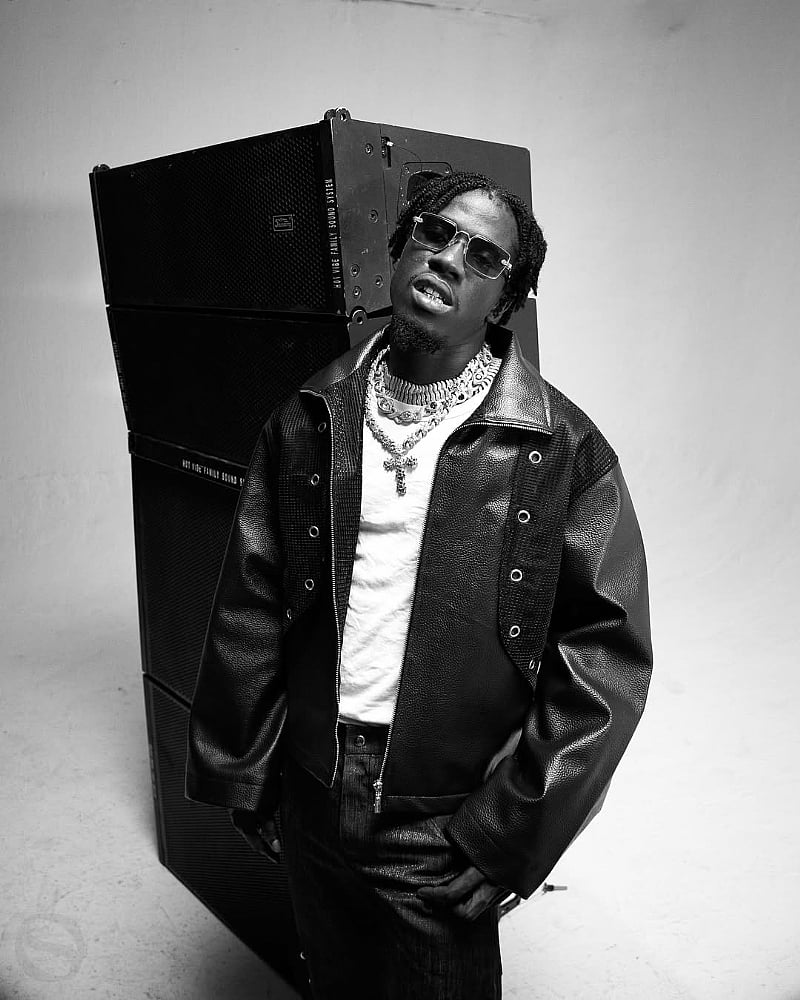The All White Boat Party on the Thames was meant to be a vibrant celebration of Ghanaian culture and music, a showcase of Afrobeat energy against the backdrop of London’s glittering skyline. King Paluta, a rising star in the Ghanaian music scene, took the stage with the swagger of an artist on the brink of international recognition. However, what should have been a triumphant performance quickly devolved into a public relations disaster. Mid-set, instead of captivating the audience with his music, Paluta launched into a tirade against a female attendee, publicly berating her for not displaying sufficient enthusiasm for his performance. This unwarranted attack, captured on phone cameras and swiftly disseminated across social media, transformed the festive atmosphere into one of stunned silence and disbelief. The incident instantly shifted the narrative from a celebration of Ghanaian music to a critique of Paluta’s behavior, casting a long shadow over his burgeoning career.
The public shaming of the female attendee reverberated throughout Ghana, where respect for women is a deeply ingrained cultural value. Paluta’s actions were widely condemned as ungentlemanly, uncouth, and a betrayal of Ghanaian cultural norms. The incident was not merely a momentary lapse in judgment but a stark demonstration of hubris, amplified by the public platform he commanded. Industry veterans and commentators weighed in, with some calling for a sincere apology and others expressing outright disapproval. Kwabena Kwabena, a respected Highlife musician, emphasized the importance of humility, while the outspoken BullGod labeled Paluta’s behavior as disgraceful and unprofessional. Kwame Dadzie, a cultural commentator, advocated for a balanced approach, urging for accountability while also encouraging constructive criticism rather than outright condemnation.
Instead of offering the expected apology, Paluta released a song titled “Between Me and God,” a move perceived by many as a dismissive and defiant response. The song, which attempted to frame the controversy as a private matter between himself and God, failed to resonate with the public. Critics and fans alike found the track lacking the artistic depth of his previous work, viewing it as a thinly veiled attempt to deflect responsibility rather than a genuine expression of remorse. The release of “Between Me and God” further exacerbated the situation, reinforcing the perception of arrogance and disregard for public opinion.
The incident exposed a critical vulnerability in Paluta’s career trajectory: the fragility of fame built solely on talent without the foundation of strong character. In the globalized music industry, artists, particularly those still establishing themselves, must recognize that their public image is not just about their music but also about their values and how they represent their culture. Paluta’s actions undermined his credibility, jeopardizing the support of the very fans who propelled his rise to prominence. For a Ghanaian artist performing abroad, disrespecting a woman on a public platform not only damages personal brand but also tarnishes the image of Ghanaian culture.
The path to redemption for Paluta, though challenging, remains open. A sincere and public apology, directly addressing the woman he insulted and acknowledging the harm caused by his actions, would be a crucial first step. Engaging with industry elders and mentors, demonstrating a willingness to learn and grow from the experience, could help rebuild trust and demonstrate a commitment to personal growth. Reflecting on the incident and understanding the impact of his behavior is essential for regaining the respect of his audience and rebuilding his career.
The incident involving King Paluta serves as a cautionary tale about the importance of humility, respect, and accountability in the music industry. It underscores the power of public perception and the potential consequences of unchecked ego. While talent can open doors, it is character that sustains a long-term career. This incident, though deeply regrettable, presents an opportunity for growth and transformation. If Paluta chooses to embrace humility and learn from this experience, he may emerge stronger and more mature, both as an artist and as an individual. The future of his career hinges on his willingness to acknowledge his mistakes and take genuine steps toward making amends.














